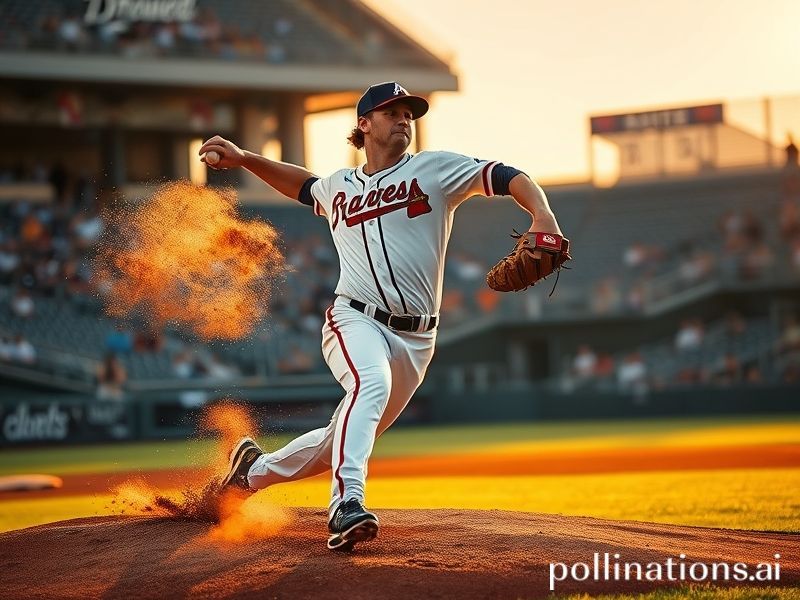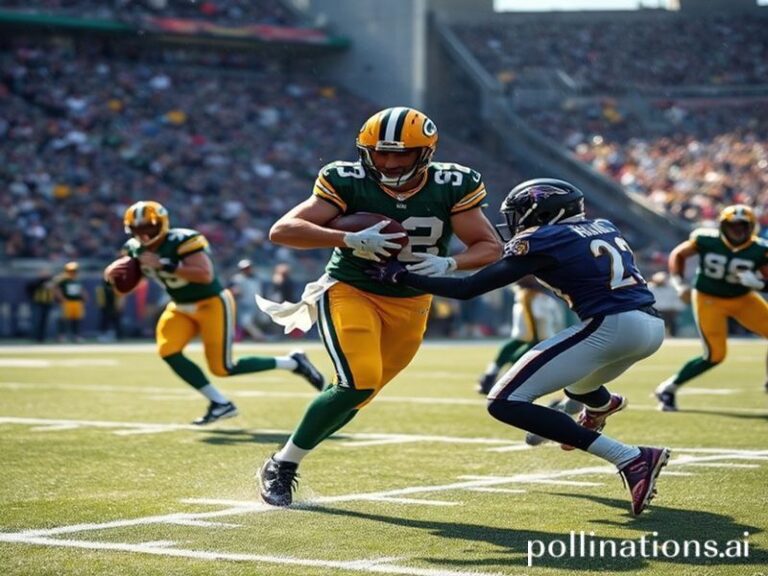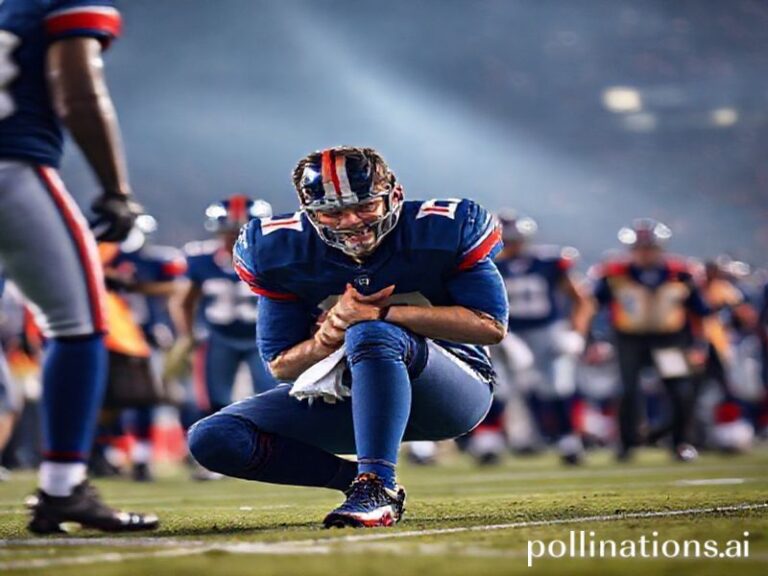Curveball Diplomacy: How Max Fried Became the World’s Most Overanalyzed Left Arm
A Left-Hander’s Fastball as Global Rorschach Test: Max Fried and the Geopolitics of a Curve
PARIS — Somewhere in the Marais, an art dealer is trying to flip a signed Max Fried jersey for the price of a studio flat in Lisbon, arguing that the Atlanta Braves left-hander is the closest thing 2024 has to a secular saint. The pitch—pun intended—is that Fried’s 95-mph fastball is less baseball and more liquid diplomacy: a kinetic object lesson in how to throw heat without starting a land war in Asia. Buyers nod solemnly, because in a world where trade sanctions are the new batting practice, any cultural export that doesn’t crater the supply chain feels miraculous.
Fried’s ascent from Harvard-Westlake to the top of MLB’s ERA heap is, on its face, a very American fairy tale: California kid, Jewish surname, polite handshake with destiny. Zoom out, though, and the narrative detours through every major choke point of late-stage capitalism. The elbow ligament he rehabbed in 2020? Reconstructed with polymer science developed in a Swiss lab, funded by Qatari sovereign wealth, and marketed to anxious Little Leaguers in Seoul. His endorsement portfolio—New Balance cleats and a Japanese glove company nobody in Osaka actually uses—reads like a parody of globalization’s awkward family reunion.
The international angle isn’t ancillary; it’s the whole joke. When Fried dots a back-door curve on the black, European data-miners watching the Statcast feed treat it as a proof-of-concept for predictive analytics. Chinese streaming platforms cut the clip into bite-sized GIFs, overlaying it with Confucian aphorisms about patience that would make the old man blush. Meanwhile, in Caracas, a teenager who’s never seen grass outside of FIFA video games studies the spin rate the way Cold War kids once memorized MIRV trajectories—because a scholarship to an American academy is now a more reliable exit visa than any embassy stamp.
Baseball itself is no longer a sport so much as a trade route. The Dominican Republic alone exports more shortstops than bananas at this point, and Fried’s left arm is simply the premium end of that commodity chain. When he signed for $6.85 million out of high school, the transaction registered as a minor tremor in the balance-of-payments spreadsheets of three countries. His subsequent arbitration wins are debated in Bloomberg op-eds alongside copper futures and Taiwanese semiconductors. If that strikes you as obscene, congratulations—you’ve just grasped the aesthetic of the era.
Of course, every empire needs its propaganda. MLB International now beams Braves games into 200 territories, packaging Fried as the wholesome antidote to the nihilism of European Super League fiascos and the crypto-bro circus of the NBA. The message is subtle: here is a man who still wears stirrups, who thanks his catcher in post-game pressers like a 1950s bank clerk grateful for a promotion. The subtext, whispered over craft cocktails in Shoreditch, is that America can still produce craftsmen when it isn’t busy exporting democracy by drone.
Then there’s the Jewish subplot—an identity Fried wears lightly but which travels heavily. In Tel Aviv, sports radio hosts dissect his starts with the fervor reserved for Iron Dome updates. Synagogues from Buenos Aires to Berlin raffle off his bobbleheads for youth-group trips, proof that diaspora solidarity now includes fantasy-league stats. When Fried chose to sit out a 2021 start for Yom Kippur, the gesture was reported in Haaretz beneath the fold and in The Athletic above it, a tidy illustration of whose narratives get amplified.
The cruel punchline? None of this actually requires Max Fried to be interesting. He could be a sentient spreadsheet for all the globe cares; the supply chains, identity politics, and brand synergies will still orbit him like debt collectors around a finance minister. What matters is that he throws a sphere very fast, very accurately, and—crucially—on television. In a civilization addicted to controlled outcomes, that passes for grace.
So when the inevitable documentary drops—narrated by a gravel-voiced Oscar winner over slo-mo shots of sweat flying like collateral damage—remember it isn’t really about baseball. It’s about a species so desperate for coherence it will project world peace onto a left-handed curveball and call it morning in America. Fried will tip his cap, the credits will roll, and somewhere a hedge-fund algorithm will already be arbitraging the sequel.







